Nowadays, nearly every person has a mobile phone to communicate with others remotely as well as engage online through social media networks. It is more rare to see someone without a phone than with one. With technology impressing us every day with new advances and trends, eCommerce sites have gone mobile. There is virtually (literally) a mobile app for everything from grocery shopping to thrifting to food delivery. Most of the population prefers mobile websites over desktops, which has given reason to many online retailers to tap into new, convenient markets.
Several eCommerce platforms were created specifically for mobile use. A pivotal factor being that most of these mobile eCommerce platforms can be used without any coding experience. So for those who are new to eCommerce and mobile web development, this article highlights the best eCommerce platforms with Mobile Apps that enable independent entrepreneurs to develop a mobile eCommerce app and experience more cost savings than outsourcing an agency to build the app.
Keep reading this article to learn:
The benefits of choosing an eCommerce Mobile App
What to look for when shopping for an eCommerce platform
The best eCommerce platforms with Mobile Apps
Mobile-friendly eCommerce Platforms Revealed
- Magento: best for established online businesses
- Shopify: best overall value
- BigCommerce: best for larger businesses
- WooCommerce: best for WordPress users
- Oracle CX Commerce: Best for cloud-natives
- Ecwid: Best for small to medium-sized businesses
- SAP Commerce Cloud: Best for B2B businesses
What to look for when shopping for an eCommerce platform
When shopping for the perfect eCommerce platform, it is crucial to understand precisely what type of products or services will be offered to the customer. This determines whether a specialized eCommerce platform is necessary, such as a B2B platform. Next, consider the key features required to successfully build, launch, and run an online eCommerce business. Perhaps your business will require various third-party integrations. In that case, choosing an eCommerce platform that is compatible with these integrations is vital. Most platforms are equipped with their own set of marketing tools. Define what those tools are. It could be anything from SEO features to multi-sales channels of built-in marketing features. Additionally, any eCommerce platform that provides detailed analytics is a winner in our books. The numbers mean everything, so finding a platform that will help track conversions, traffic, and sales is essential.
What are the benefits of having an eCommerce Mobile App
First, let’s cover the importance of having a mobile app for an eCommerce website. People are shopping online more than ever before now, especially so over the last year. Regardless of which industry your online eCommerce business is in, there’s typically going to be a mobile demand for it. At the same time, many companies have yet to take their platform mobile, those who have experienced exponential growth. The power of the internet is an incredible thing to behold.
Why not make it into something great that will serve an online business financially while serving a whole dedicated community. These mobile apps can be optimized for all device types, such as mobile phones and tablets. As a business owner, it is crucial to stay in tune with trends and adapt. Essentially, if you have an eCommerce business, you need a mobile app. It is an excellent way to expand the business and stay relevant in a specified market. Here are a few critical reasons as to why an eCommerce business would benefit from developing a mobile app.
It’s the most convenient way to shop now
With everything going digital, the need for mobile-friend eCommerce platforms has significantly increased and will continue to do so for the foreseeable future. Mobile eCommerce is the latest and greatest trend. Most people would instead pull up a shop on their mobile phone than take the time to look it up on a computer. With today’s technology, some phones could essentially replace a computer entirely for some.
Competitive Advantage
Without a mobile app, an eCommerce website could appear outdated. Since customers would much prefer to shop through mobile apps, the need to shop from a mobile website will eventually dissipate. Maybe not permanently, but it would undoubtedly put an eCommerce website at a significant disadvantage.
Increased Conversion Rates
It is no secret that mobile app sales tend to have a higher conversion rate than mobile websites. If you are not already tracking conversions, it is essential to start doing so immediately. This data will provide a great deal of detail of a fresh perspective on the numbers. Ultimately, what’s most important is doing what is possible to boost KPIs.
Excellent Marketing Tool
Without a mobile app, eCommerce businesses must depend solely on the customers finding their way to the website. As a marketer, it is primarily their job to help spread the word of the company and what it offers in a way that proves engaging by having customers visit and buy from a website. But let’s be realistic. The chance of the same person returning to the website to purchase is less likely compared to having an eCommerce mobile app that fits in the palm of your hand. This results in marketing teams investing thousands, sometimes hundreds of thousands of dollars, on marketing campaigns, from email blasts to social media campaigns. The best way to find a happy medium is by developing a mobile app. Push Notifications help businesses notify their customers immediately of any sales, updates, and more.
Personalize the Shopping Experience
If a new customer does not immediately connect or perhaps an existing customer has lost interest in an eCommerce website, it could be that it lacks personalization. It’s essential that each customer is made to feel special in some way, whether it be due to their age or geographical location. A helpful marketing tactic is to develop targeted content that improves the customer’s shopping experience. With mobile apps, it is possible to track the customer’s shopping habits. This data gives businesses the ammunition to create a well-rounded and personalized shopping experience that gains and retains customers.
Top eCommerce Websites to Build a Mobile App
1. Magento
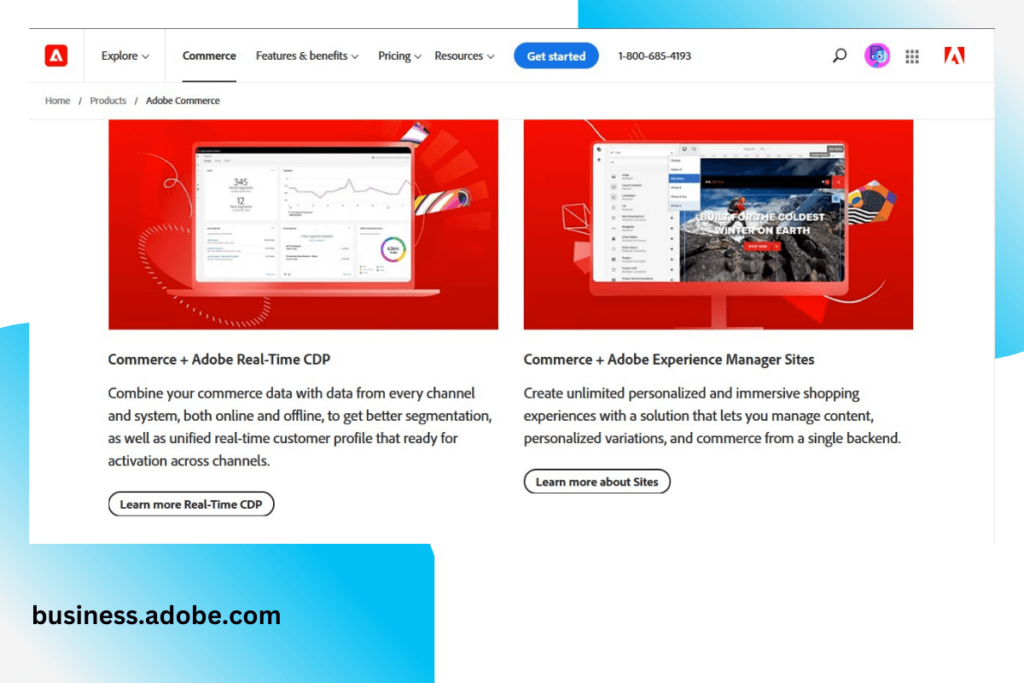
As an open-source platform, Magento uses cutting-edge technologies to take online shopping to the next level. From powerful SEO tools, quality customization, and plenty of networking opportunities, Magento delivers an unparalleled eCommerce experience. It has proven to be a fast and flexible eCommerce solution that can help build the perfect and personalized shopping experience. Its out of the box features help users create an engaging interface that leaves a lasting impression on the customer.
Magento works great with building mobile-friendly solutions for a variety of online businesses, no matter the size. Magento is known for its seamless mobile-friendly checkout that is compatible with several different payment gateways. Some of the world’s biggest brands use Magento for their mobile eCommerce applications, such as Ford and Nestle Nespresso.
2. Shopify
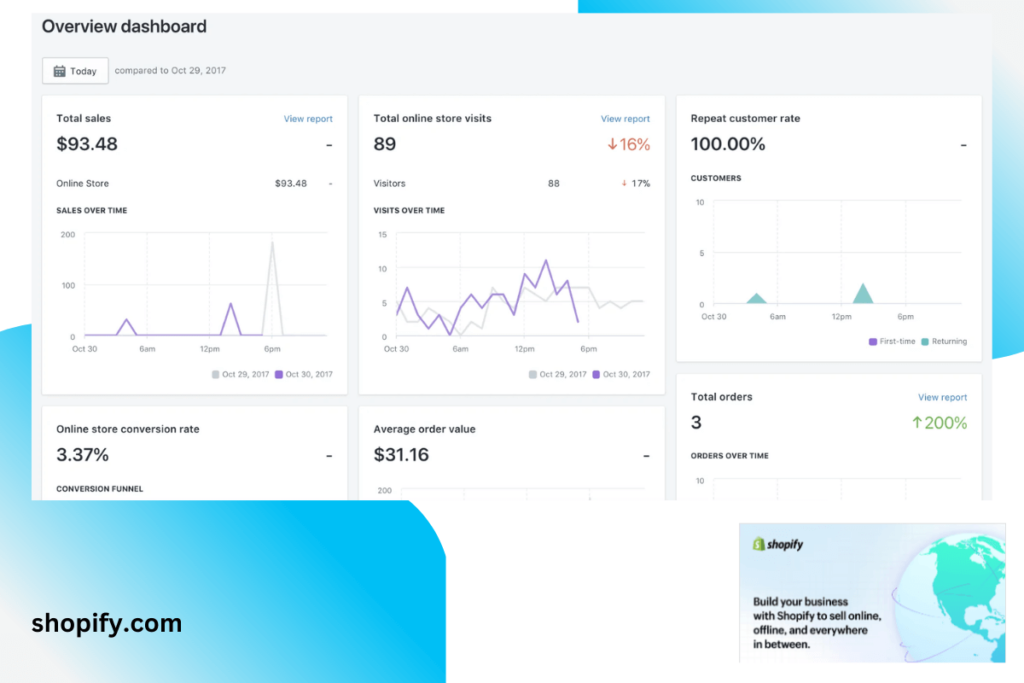
Shopify is an exceptional piece of eCommerce technology and happens to be the most popular eCommerce platform used by thousands of online businesses. It delivers a great experience from the creation of an eCommerce website to the operations behind it. The platform features a drag and drop interface that is easy to use and navigate. Users can choose one of the many stunning web design templates to help get them started on the right foot. Additionally, Shopify offers plenty of plugin features and extensions that will helpfully optimize an eCommerce website for maximum value.
On top of all the impressive features Shopify offers, it also provides a mobile commerce solution that empowers online storefronts to become accessible on the go. A Shopify mobile application will enable quick access to customer demographics, order history, sales statistics, and much more, all from a smartphone. Shopify is compatible with both iOS and Android and empowers third-party mobile app developers to integrate with the eCommerce website for a seamless mobile shopping experience. The process of getting started is as easy as creating a development store, installing the app on the store, and then downloading the Shopify App. Shopify starts as low as $29/month, and they offer a 14-day free trial.
3. BigCommerce
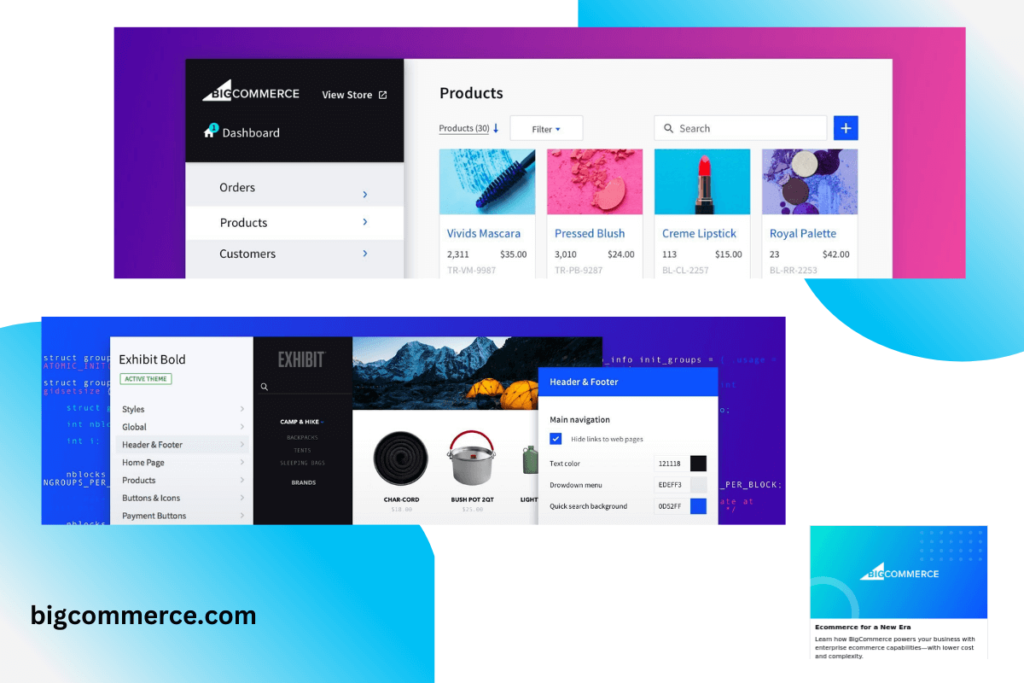
BigCommerce is a popular SaaS eCommerce platform packed with powerful SEO performance, impressive analytics, and, most importantly, scalability. BigCommerce can accommodate any business, no matter how big or small. Many find their scalability to be the most significant advantage with using BigCommerce. The platform evolves as the business grows, making it easy to adapt to current trends. It features several key features: high customization, simplicity, seamless checkout, and third-party app integrations.
BigCommerce makes it possible to build mobile commerce apps that help scale online businesses and establish a solid mobile presence using their lateral mobile-optimized themes. It is good to note that BigCommerce does use plugins and built-in tools that can be an additional cost on top of the standard subscription cost to run the mobile website. BigCommerce plans start at $29.95/month.
4. WooCommerce
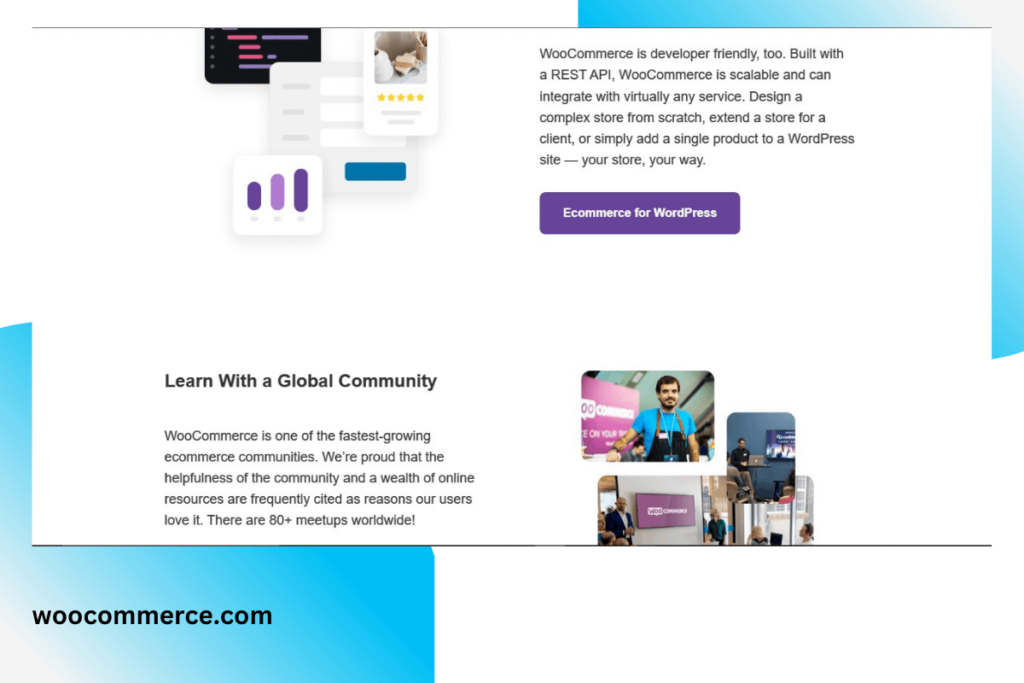
WooCommerce is specifically a free plugin that is made for WordPress. If a business already has a WordPress website, they just need to install the WooCommerce plugin to get access to eCommerce functionalities. This innovative eCommerce solution has become quite popular due to its simplicity, customization, inventory management, and much more. As an open-source eCommerce software, there is no cost to download and install this plugin. WooCommerce provides built-in mobile tools to help build a strong eCommerce mobile app, including plenty of development plugins and extensions. Although, many of these extensions and plugins are paid.
5. Oracle CX Commerce
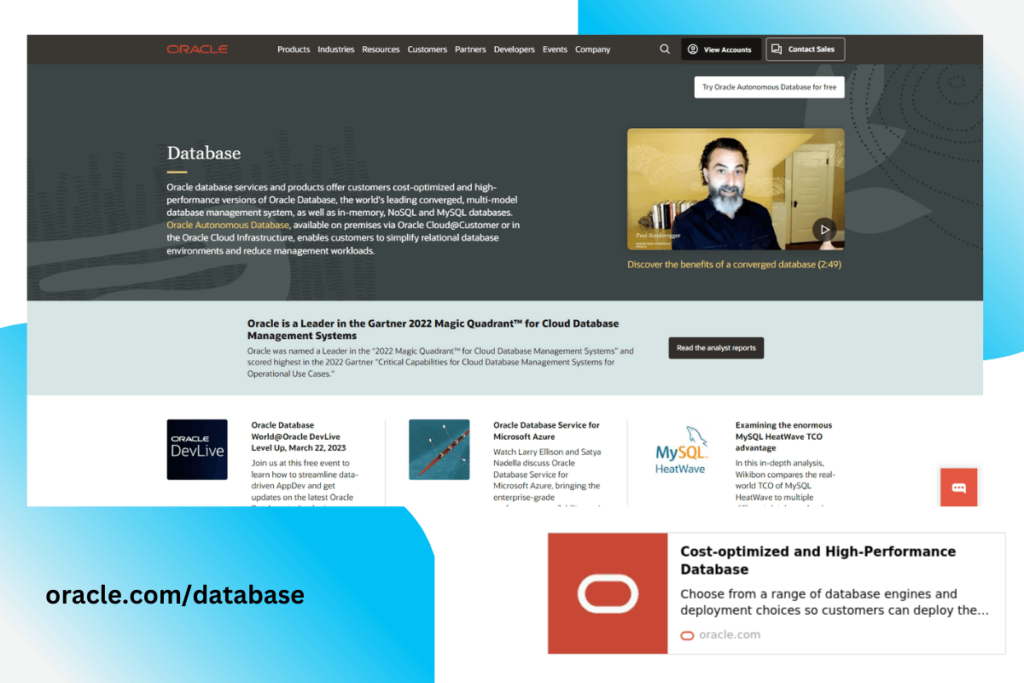
Oracle is a cloud-based eCommerce platform that enables online sellers to develop and manage websites, search engine optimization, and mobile applications. Oracle offers an out-of-the-box approach to helping businesses meet their needs. Users can manage anything from customer experience, SEO, merchandising, promotions, and much more. It features a drag and drop interface that makes it easy to use and navigate. Although some aspects require outsourcing an IT professional or something of that sort, it can be done with as little coding as possible.
6. Ecwid

Unlike many of the platforms we’ve discussed, Ecwid is a relatively new eCommerce platform that first originated in 2009. This platform can sync across multiple third-party applications such as Amazon, eBay, social media, and eCommerce websites. Some unique features Ecwid offers include multi-channel sales, built-in marketing such as MailChimp and advanced SEO, unlimited bandwidth, inventory tracking, and automation. Not to mention, it is a highly mobile-friendly software.
Ecwid clearly understands the growing desire for convenience in online shopping. That’s why they’ve made it possible for users to build an online store on the go. Users can subscribe to their forever free plan, which provides only the essential fundamental tools. Or, consider making the investment in a paid plan ranging from $15/month to $99/month. For a test drive, check out their 14-day free trial that enables users to experience the plan of their choice with no financial commitment yet.
7. SAP Commerce Cloud

SAP Hybris is a popular commerce-cloud solution that provides context-driven mobile capabilities. They specialize in business agility, building a tighter connection with the customer, and streamlining the business to meet market demands. A few key benefits of implementing SAP Hybris include a microservices-based architecture and engagement reports that help ensure needs are being met.
Summary
The bottom line, your eCommerce store needs a mobile app. Customers highly prefer shopping from mobile apps to a desktop or mobile websites. It’s easier and more convenient for the user. Additionally, this connection empowers businesses to take advantage of push notifications. These notifications can help notify the customer of any upcoming events, sales, and new product updates to keep them informed. Ultimately, a mobile application can save a lot of money and time, considering those push notifications can essentially replace an email newsletter, thus saving marketing costs.
